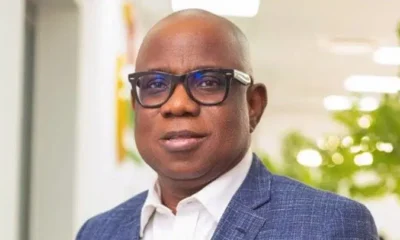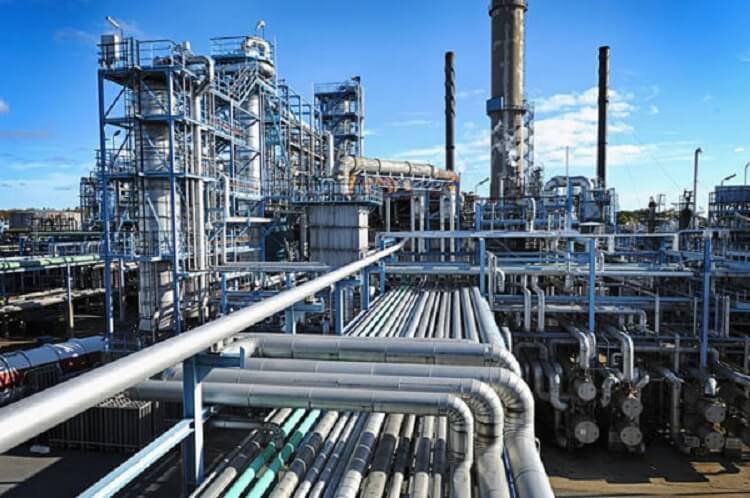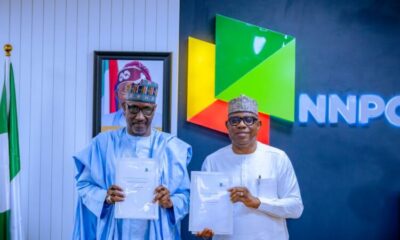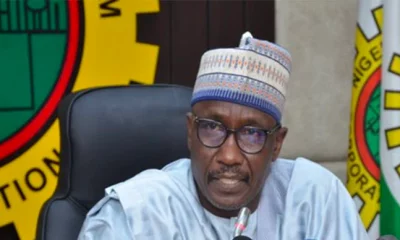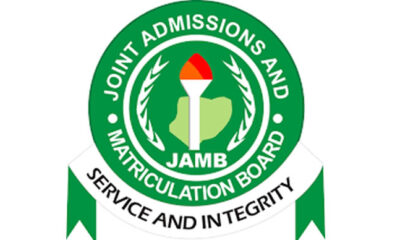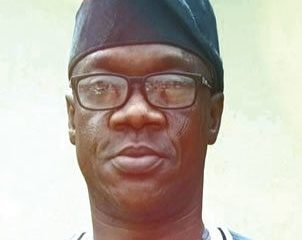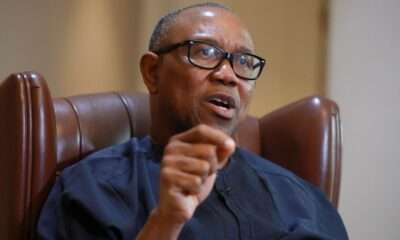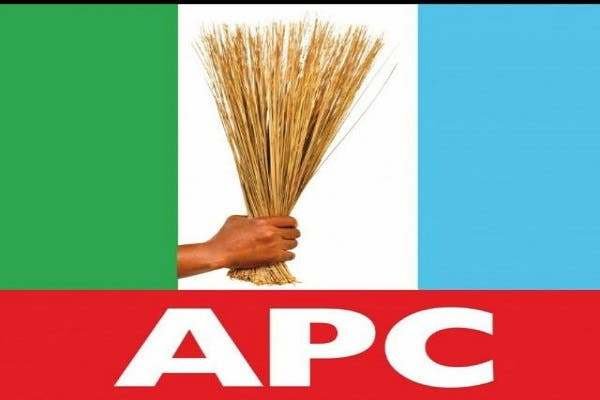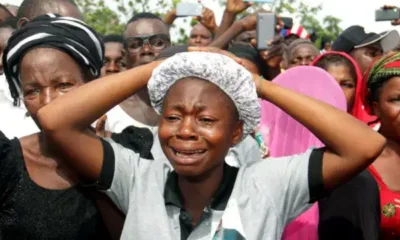Business
Marketers Kick As NNPCL Delays Fuel Supply
Published
1 year agoon
By
Editor
Oil marketers under the aegis of the Independent Petroleum Marketers Association of Nigeria have berated the Nigerian National Petroleum Company Limited for alleged delay in the supply of petroleum products.
As a result, the marketers said they had been forced to boycott the NNPCL to source fuel from private depot owners at a higher cost.
In an exclusive interview with The PUNCH, the National Vice President of IPMAN, Hammed Fashola, asked the Federal Government to review the current distribution pattern with a view to giving priority to IPMAN members.
According to him, independent marketers own 80 per cent of the filling stations in Nigeria and, as such, deserve the “lion share” in fuel allocation.
READ ALSO: NNPCL Records 214 Oil Theft Cases In One Week
Fashola said, “More so, we buy products from NNPCL cash and carry. We don’t enjoy any credit facility with the NNPCL. There are times we pay for products, and you don’t get the products for two or three months. You have your money in the coffers of the NNPCL, which means they are trading with our money.
“If I am not exaggerating, we should be talking of over N300bn, when you consider the number of marketers all over Nigeria. Our money is always there trapped, while we keep struggling to get fuel.”
He narrated that marketers usually pay through the NNPCL portal with the hope of getting the product in two three days; but “that two three days will turn into months if they don’t have products or they are out of stock, you have to wait, and your money will be there.”
Fashola emphasised that IPMAN members “have our money in billions in the NNPCL wallet. Apart from that, we have invested so much, especially the northern marketers, now their money is trapped, in billions. They cannot even afford to buy products again because of that money there”.
READ ALSO: Canada To Reduce Admission Slots For Nigerian Students, Others
He lamented that some marketers, who borrowed from banks could not pay back their loans, stating that many operators were being forced to put up their stations for sale “to offset debts because marketers are going through a lot.”
He stated further that, “When NNPCL open their portal and you pay in, with the hope of getting your product soon. In the process, there will be delay; maybe you pay for two trucks and you could not get it in three weeks or one month, you cannot leave your station idle. You will be forced to go to private depot and buy, just to wet your station. If the product is flowing, nobody will go to private depot.”
Fashola said the association was communicating with the NNPCL on the trapped capital.
“We are always in touch with the NNPCL. We have a communication channel. When they receive, they give the little they can give. One thing we discovered through our interaction with them is that they have their own constraints too. With the sharing formula with the passing of the PIA, they are only entitled to 30 per cent, because they are trying to avoid monopoly of market, that’s a problem on their own side too.
READ ALSO: Why Illegal Degree Awarding Institutions Are Rampant — NUC
“If they get 30 per cent, and out of the 30 per cent, they are giving IPMAN, there will be problems. They have their retail outlets too. They have acquired Oando and the stations they got from Oando are not less than 900, this in addition to the ones they have before. But I believe they must do something about their sharing formula. If we have to take from the NNPCL, I think they have to increase what they are giving the NNPC Retail.”
When contacted, the NNPCL spokesman, Femi Soneye, said he was not aware of any IPMAN fund trapped in the NNPCL account.
According to him, IPMAN has an appropriate channel through which it communicates with the company.
Soneye requested that whoever makes such allegations should provide evidence.
“I am not aware of anything like that. IPMAN has an appropriate channel through which they communicate with us. Whoever makes that allegation in IPMAN should provide the evidence. We still had a meeting with IPMAN today (Monday) and nothing of such was mentioned,” he told our correspondent in a telephone conversation.
PUNCH
You may like


Senate committee threatens arrest warrant for NNPCL GCEO


NNPCL Spokesperson Soneye Resigns


NNPC Announces Port Harcourt Refinery Shutdown


Ojulari Resumes As GCEO, As NNPC Unveils New 8-man Senior Management Team


5 Things To Know About Bayo Ojulari, Former Shell Chief Now NNPC GCEO


JUST IN: NNPCL Set To Sell Shares

The Naira experienced a slight depreciation on Friday at the official market, trading at N1,528.56 to the dollar.
Data obtained from the website of the Central Bank of Nigeria (CBN) showed that the Naira lost N2.73.
This represents a 0.17 percent loss compared to the N1,525.82 recorded on Thursday.
READ ALSO:Naira Appreciates At Official Market
The Naira, which opened the week on Monday with a gain of N9.52 against the dollar, held steady gains until Thursday.
On Wednesday, the local currency gained N3.42 against the dollar and received commendation from the International Monetary Fund (IMF).
The IMF, in its 2025 Article IV Consultation report on Nigeria, commended the CBN for its reforms to the foreign exchange market, which supported price discovery and liquidity.
Business
JUST IN: Dangote Refinery Hikes Petrol Ex-depot Price
Published
3 weeks agoon
June 20, 2025By
Editor
Nigerians may soon pay more for petrol as the Dangote Petroleum Refinery on Friday increased its ex-depot price for Premium Motor Spirit to N880 per litre, raising fresh concerns over fuel affordability and price volatility in the downstream sector.
Checks on petroleumprice.ng, a platform tracking daily product prices, and a Pro Forma Invoice seen by The PUNCH confirmed the hike, representing a N55 increase from the previous rate of N825 per litre.
The increment would ripple across the entire fuel distribution chain, likely pushing pump prices above N900/litre in some parts of the country, especially in areas far from the distribution hubs.
The hike comes despite global crude prices falling. Brent crude dipped by 3.02% to $76.47, WTI fell to $74.93, and Murban dropped to $76.97 on Friday. The decline in benchmarks offers little relief due to persistent fears of sudden supply disruptions.
READ ALSO: JUST IN: Dangote Refinery Sashes Petrol Gantry Price
The refinery has increased its reliance on imported U.S. crude and operational costs amid exchange rate instability, which adds to its pricing pressure.
On Thursday, the President of the Dangote Group, Aliko Dangote, said his 650,000-barrel capacity refinery is “increasingly” relying on the United States for crude oil.
This came as findings showed that the Dangote Petroleum Refinery is projected to import a total of 17.65 million barrels of crude oil between April and July 2025, beginning with about 3.65 million barrels already delivered in the past two months, amid ongoing allocations under the Federal Government’s naira-for-crude policy.
Dangote informed the Technical Committee of the One-Stop Shop for the sale of crude and refined products in naira initiative that the refinery was still battling crude shortages, which had led it to resort to imports from the United States.
READ ALSO:Dangote Stops Petrol Sale In Naira, Gives Condition For Resumption
On Monday, the president of the Petroleum and Natural Gas Senior Staff Association of Nigeria, Festus Osifo, accused oil marketers of exploiting Nigerians through inflated petrol prices, insisting that the current pump price of PMS should range between N700 and N750 per litre.
He criticised the disparity between falling global crude oil prices and the stagnant retail price of petrol in Nigeria.
“If you go online and check the PLAT cost per cubic metre of PMS, convert that to litres and then to our Naira, you will see that with crude at around $60 per barrel, petrol should be retailing between N700 and N750 per litre.”
He asserted that if Nigerians bear the brunt of higher fuel costs, they should be allowed to enjoy the benefit of low pricing.
His forecast of increased costs now appears spot on, considering the latest developments.
Marketers are already adjusting. Depot owners and fuel distributors in Lagos and other cities anticipate a domino effect, with new price bands expected to follow Dangote’s lead.
Many had held back pricing decisions since Tuesday, when the refinery halted sales and withheld fresh PFIs. The delay fueled speculation, allowing opportunistic price hikes across various depots.

The Naira, which has seen steady appreciation against the Dollar all week, closed stronger on Friday, trading at ₦1,580.44 in the official forex market.
Data from the Central Bank of Nigeria’s website show the Naira gained ₦4.51k against the Dollar on Friday alone.
This marks a 0.28 per cent appreciation from Thursday’s closing rate of ₦1,584.95 in the official foreign exchange window.
The local currency maintained consistent strength throughout the week, recording gains daily.
READ ALSO: Naira Appreciates Against Dollar At Foreign Exchange Market
On Monday, May 19, it traded at ₦1,598.68; on Tuesday, at ₦1,590.45; and on Wednesday, at ₦1,584.49.
These gains suggest increased investor confidence and improved forex supply, contributing to the naira’s performance.
Meanwhile, the CBN, at its 300th Monetary Policy Committee meeting held Monday and Tuesday, retained the Monetary Policy Rate at 27.5 per cent.
- NAFDAC Warns On Recalled U.S. Supplements
- Protest Rocks Abuja Over Osun LG Polls
- ADC Unveiled In Benue, Woo Gov Alia
- FG Launches Phase 7 Of Kainji Mass Trials Of Terrorist Suspects
- Lagos LG Poll: Police Restrict Movement Saturday
- EFCC Probes Man Nabbed With Undeclared $420,900 At Kano Airport
- Driver Stabs Former Boss To Death In Lagos
- Police Arrest Cultist For Murder, Abduction In Anambra Community
- Police Unveil Operation To Tackle ‘One-chance’ Robberies In FCT
- Pregnant UNIPORT Student Nabbed For Torching Lover To Death
About Us
Trending

 Entertainment4 days ago
Entertainment4 days ago2Baba’s New Romance In Trouble As Natasha Fumes Over Loyalty Remark

 Politics5 days ago
Politics5 days agoCoalition: Why Tinubu Must Not Sleep —Primate Ayodele

 News2 days ago
News2 days agoBREAKING: FG Officially Releases Age Limit For Admission Into Tertiary Institutions

 Metro4 days ago
Metro4 days agoTragedy As Navy Boat Capsizes After Free Medical Outreach In Delta

 News2 days ago
News2 days agoFlash Flood Warning: Sokoto, Edo, Akwa Ibom, 17 Other States At Risk In July — NiMet

 News2 days ago
News2 days agoOPINION: APC’s Leprosy Versus ADC’s Scabies

 Politics3 days ago
Politics3 days ago2027: Peter Obi Speaks On Running For President, Deal With Atiku

 Politics4 days ago
Politics4 days agoJUST IN] 2027: South-South APC Endorses Tinubu, Four Govs For Re-election

 News4 days ago
News4 days agoNigeria Becoming Land Flowing With Tears And Blood — Anglican Bishop Of Warri Laments

 Metro5 days ago
Metro5 days agoCultism: Edo Police Arrest Suspected Killer Of Three Vigilantes, 15 Others
